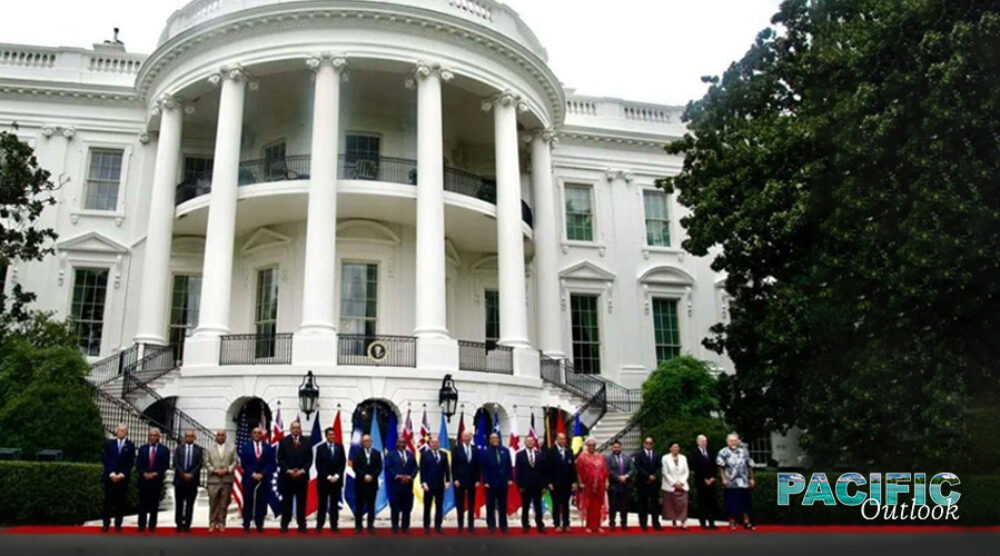President Biden has hosted the leaders of 18 South Pacific nations at the second US-Pacific Island Forum Summit.
Such continued interest from the White House is unprecedented, at least since World War II, maintaining its pace on last year’s release of the South Pacific Strategy—the first of its kind—and other penetrating bilateral agreements such as the US-PNG Defence Cooperation Agreement.
Beijing’s renewed Pacific interest has unquestionably driven the Biden-Harris Administration’s energetic response. And yet, while some may be critical of such raw strategic motivations, it does offer equally unprecedented opportunities for both Pacific political leaders and citizens of the 18 Pacific island countries (PICs).
Two broad observations have emerged from the Summit.
The first is the notable absence of Solomon Islands Prime Minister Manasseh Sogavare, who has ties with Beijing. Sogavare departed the US after addressing the United Nations General Assembly versus travelling to Washington.
As noted by commentator Peter Jennings, Sogavare’s absence “takes some chutzpah,” given that “the US reopened its embassy in the Solomons only last February and is lining up to be a donor.” This is not to mention the deep historic ties—formed for example in the Battle of Guadalcanal—that Sogavare pushed back on in his UN address.
The second observation is what development experts have warned is a balance between managing Washington’s security concerns with the development priorities of PICs, with climate change being the centre-piece issue for Pacific leaders.
PIC nations and leaders—understandably—do not want to be forced into bidding wars and to pick sides. To use Papua New Guinea’s long-standing foreign posture as regional shorthand—it’s reasonable to be ‘friends to all, enemies to none’.
Nothing in Biden’s rhetoric or his administration’s actions reflects otherwise. The Summit’s roster of commitment items from the White House says all the right things that encourage Pacific leaders to supply domestic audiences, from climate change to the importance of genuine enduring partnerships and infrastructure investment.
Indeed, Secretary of State Anthony Blinken, who helped lay US Strategy groundwork in early 2022, spoke at the very start of this process about “authentic engagement that speaks to the real needs of the islanders,” and for the “US to include on the agenda items that Pacific countries have identified as priorities for them.”
A key next step for Biden – and equally for Pacific leaders—will be to sustain domestic support. Congressional approval is still required for some of the US commitments that have been made.
Among Pacific leaders, the story is slightly trickier.
To use Sogavare as an example, the Beijing link is serving domestically “as a lightning rod for renewed ethnic tensions” and, while tapping fault lines that long pre-date events of the last two years, the wisdom of exacerbating these at the expense of traditional partnerships is questionable. As Australians are all too aware, the implications of state collapse in the Solomons are more than theoretical.
The situation is different in other Pacific states, yet the consistent elevation of climate change as a principal security concern by Pacific leaders—at least rhetorically—will inevitably be met by citizens that face continual localised environmental and climate-change-related issues that rest on local government capabilities and not international agreements. The management of these will have a great deal to do with local Pacific stewardship and not Washington DC.
The great advantage the US has is two-fold—it is a new player, in relative terms, and it has a values base on which to build its Pacific relationships. And here it will not only be congressional expenditure, or even grand strategy, but how the US interacts that will be important.
President Biden and Vice President Harris have so far made all the right moves.
Sean Jacobs is a Papua New Guinean-born Brisbane-based writer, government relations and public policy specialist.








